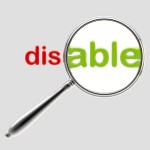Aging with a Developmental Disability
February 19, 2014 | Maintaining Independence, Prevention of Illness and Management of Chronic Conditions

In addition to serving clients with chronic physical and cognitive disabilities associated with aging, Elder Care Guides provides care management and home care services to older adults with mental health diagnoses, and older adults with developmental disabilities. These two populations are not always well-served through the programs and organizations targeted at the general adult population. People with a developmental disability or mental health diagnosis will likely have specific concerns and issues as they age that may be different than that of an older adult without a developmental disability or mental health diagnosis.
People with developmental disabilities are living longer as they typically have better health care and supports than earlier generations. Older adults with developmental disabilities have unique health care needs. The normal aging process is often complicated by a lifetime of reduced mobility, poorer general health, medications, surgeries, etc. It is not uncommon to experience symptoms such as pain, arthritis, joint problems, and fatigue at a younger age.
The more severe the developmental disability, the greater risk – and earlier onset – of the diseases commonly associated with aging. Most health practitioners are not prepared for these unique challenges. This includes a lack of knowledge about aging in persons with developmental disabilities, lack of available services in a system that has generally concentrated on services for younger people, and lack of available information on good health habits for these older adults.
Some of the challenges of aging associated with this population include:
- Reduced levels of social interaction with age. This normal process may mimic the symptoms of dementia to a health care professional.
- Difficulty communicating visual and auditory decline, resulting in isolation, anger, and/or depression.
- Adults with Down syndrome are very vulnerable to hypothyroidism, which is frequently misdiagnosed as Alzheimer’s disease.
- Older men with developmental disabilities may experience reduced ability to urinate but not be able or willing to tell anyone. The resulting discomfort frequently leads to behavioral changes.
- Menopause is often not considered by health care professionals in their treatment of older women with developmental disabilities.
- Increased likelihood of multiple medication, and medications that are not commonly used by the general population such as psychotropics.
- Earlier onset of sensory impairments and mobility challenges, often resulting in a physical environment that is more difficult to navigate.
- Adults with Down syndrome and cerebral palsy experience the same changes associated with aging but at an earlier age than both the general population and as other older adults with developmental disabilities.
Elder Care Guides’ experienced care managers can support adults with developmental disabilities and their families as they age. Care managers can help with medical advocacy at doctor appointments to ensure the specific needs of this population are identified and properly addressed as they age. Elder Care Guides can also help with referrals to other community resources and provide oversight of your loved ones care. We are here to help, so please call us today.
References
State of California Department of Developmental Services: www.dds.ca.gov
San Diego Regional Center: www.sdrc.org
United Cerebral Palsy: www.ucp.org

